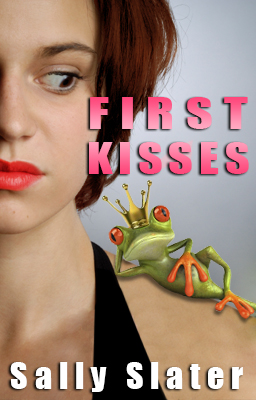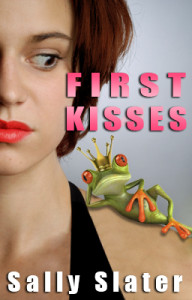Once upon a time, I went to college. I say “once upon a time” because it’s been nearly six years since I stepped through the Arch into Northwestern University for the very last time. College feels like a lifetime ago. I wasn’t a writer yet. I didn’t even know I wanted to be one.
But Northwestern is what set me on the path to becoming a writer. If I’d gone to NYU Tisch, or some other musical theater conservatory program like I’d wanted, maybe you’d see me singing on Broadway or in the movies–or more likely, waiting tables. Instead, I went to NU, where Professor Breslin told me in no uncertain terms that my future happiness would be determined by my freedom to write.
There are a lot of famous writers who went to my alma mater. George R.R. Martin is a living legend. Veronica Roth was my year. Talk about intimidating.
So imagine my surprise when Northwestern University’s Medill Club of New York – that’s the alumni club for Northwestern’s top-ranked school of journalism – invited me to speak on a panel about publishing. The day The Guardian compared Paladin to Game of Thrones was a highlight of my writing career, but to be clear, I’m well-aware I’m no George R.R. Martin!
The panel – called “How to Publish Your Book” – took place this past Monday in front of a full crowd. I was joined by Marysue Rucci, editor-in-chief of Simon & Schuster; bestselling author Maria Murnane; editor Whitney Frick with Flatiron Books; literary agent Renee Zuckerbrot; and our moderator, author and editor Christina Bryza. Every single one of these women are Northwestern alumni, which is pretty dang cool. They’ve also all been incredibly successful in their careers, and it was as much a learning experience for me as it was for the audience.
I stuck out a little bit like a sore thumb as the one representative of nontraditional digital publishing. Maria, my fellow author on the panel, had self-published her work but was eventually picked up by a traditional publisher, an imprint of Amazon Publishing. Hopefully the diversity of our experiences benefitted the audience.
I did come away from the panel with a few key takeaways that I think are valuable for all aspiring writers, no matter what path you want to pursue.
I remain a huge advocate of Wattpad as a platform both for growing and established writers. As part of prepping for the panel, I reached out to the good folks at Wattpad for some up-to-date stats on usage of the app. Did you know that a new user joins the app every second??? That’s crazy! There are also over 100 million uploads on Wattpad – so if you think it’s easy for your story to get noticed, think again. That’s a whole lot of competition—more competition than on Amazon Kindle.
Marysue Rucci, the editor-in-chief of Simon & Schuster (one of the big four publishing companies), addressed a question that I think just about every single aspiring writer on Wattpad has asked: if your story is published online first, does that mean a traditional publisher won’t be interested?
Her answer? Publishing online is not a barrier to getting traditionally published. In fact, publishers actively seek talented online writers. And now you know.
Another question that came up is whether it is better for debut authors to query newer literary agents (assuming you’re going the traditional route). The assumption there is that newer agents have lighter loads and more time for you.
While there is some truth to that – a newer agent will likely have more time for handholding if your manuscript isn’t in perfect shape – there is no reason to limit your search. All agents are open for the right author and story—even the ones who say they’re closed to submissions. To quote Renee, our agent panelist, every agent wants to be able to say, “I found him out of the slush pile.” Every agent is in search of the next big thing.
But – just to give you some perspective – Renee estimated that she gets an average of 100-120 queries PER WEEK…and she accepts “very few.”
Whitney Frick, the editor with Flatiron Books, provided even more clarity on the number of layers between writing a manuscript and getting an actual book deal. Most editors at publishing houses accept submissions only from agents (and even then, the submissions pile up). If the editor gets a submission she likes, she then has to pitch the book to her editor. A conversation also needs to happen between the sales and marketing team. The author and agent usually has to come in and meet face-to-face so everyone can make sure there is good chemistry. I had no idea the process was so complicated.
Another useful piece of advice? According to Marysue, the first paragraph of your book is the most important thing you will ever write. She said she can usually tell within 5 pages if she’s going to fall in love with the rest of the novel.
The biggest overall takeaway from the panel – whether you choose to follow a traditional or nontraditional publishing path – is that writing a brilliant story is the number one key to success (easier said than done, eh?). You can have the best platform in the world, but if the quality of writing isn’t there, your book won’t sell.
As most of you know by this point, Paladin goes on sale Thursday, May 14 (here’s my not-so-subtle transition). I’d like to think that, despite having used a non-traditional publishing platform, I’ve written a quality story. It will be interesting to see where my Wattpad journey will take me.



